Enabling VMWare cater to customer service tickets faster
Resolve incidents 60% faster with our advanced ITSM software that integrates seamlessly, offers flexibility.
For Seamless, Proactive IT Support
Wolken AI ITSM helps your teams fix incidents faster, meet SLAs without the scramble, automate the busywork, and connect every service process from end to end. Spend less time fighting fires and more time building IT services that run smoothly, predictably, and without disruption.
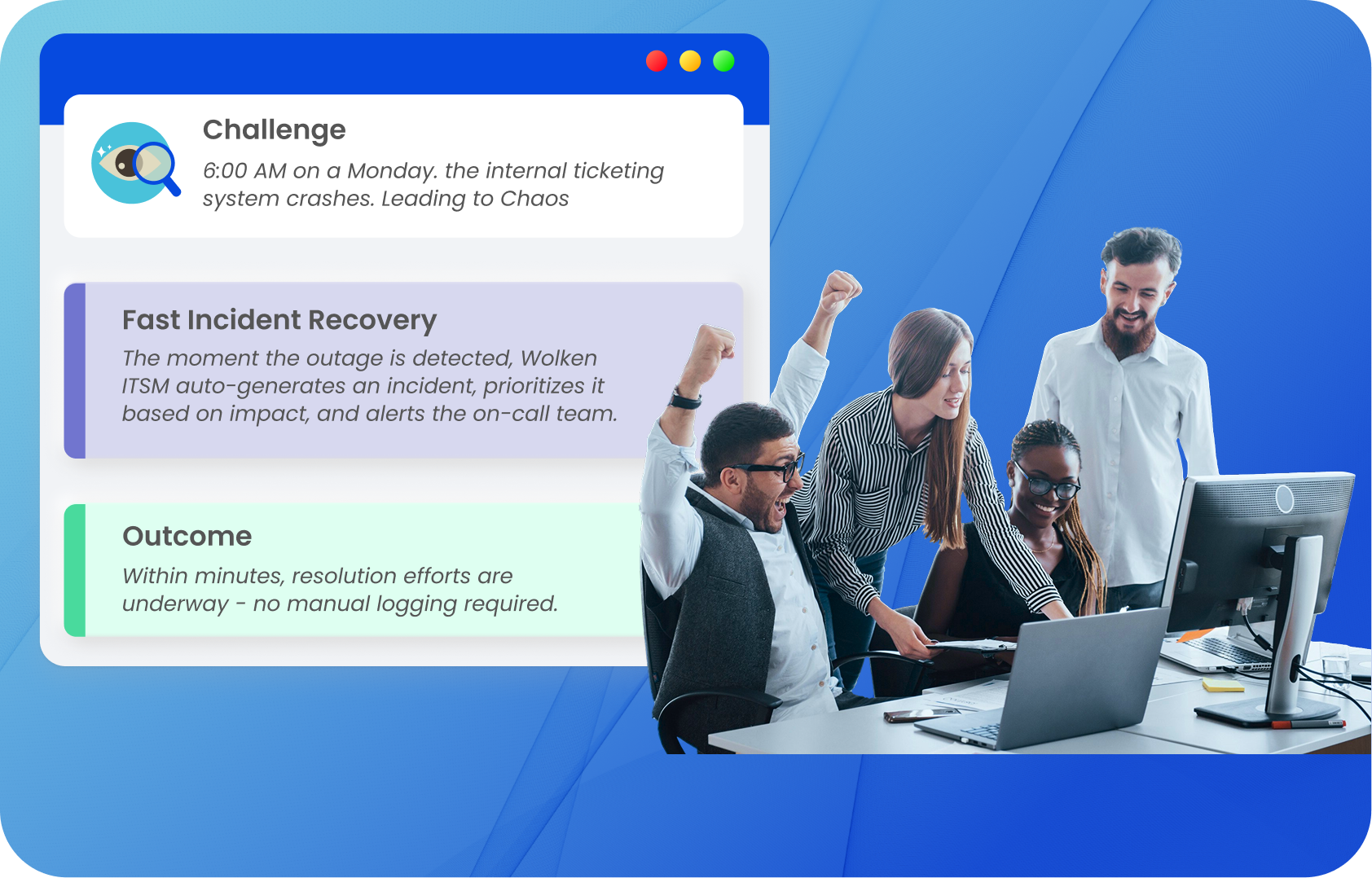
Wolken AI ITSM gives you a unified workspace, smart queues, and
real-time SLA tracking. No more
jumping between systems.
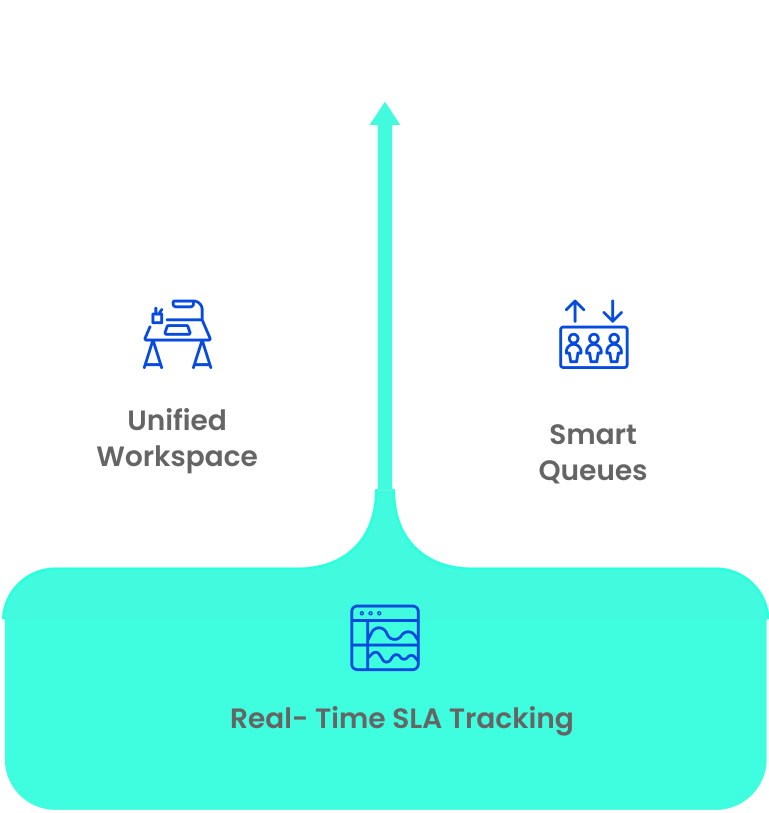
Optimise team productivity, track service performance, and drive continuous improvement with built-in reporting and operational insights.
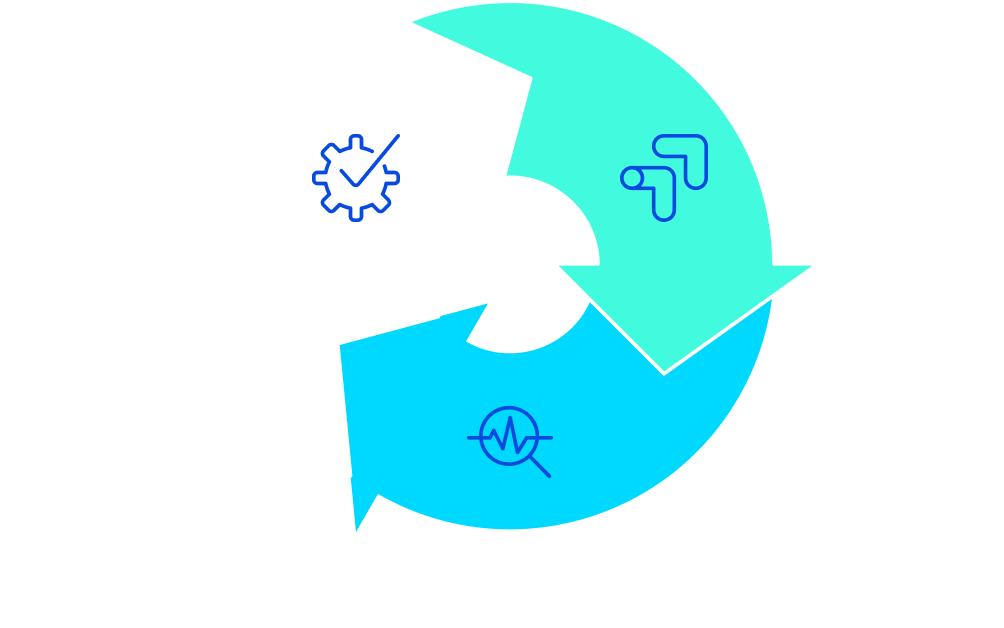
Easily submit IT requests, check status,
or find answers through an intuitive
self-service portal that works
across devices.
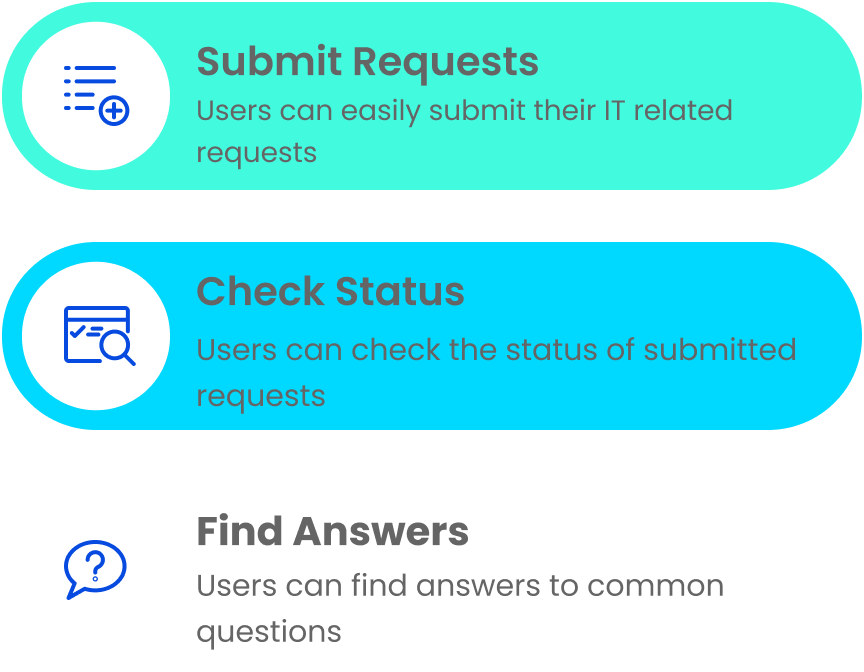
Maintain uptime and respond swiftly to incidents with proactive alerts, infrastructure mapping, and root cause analytics.
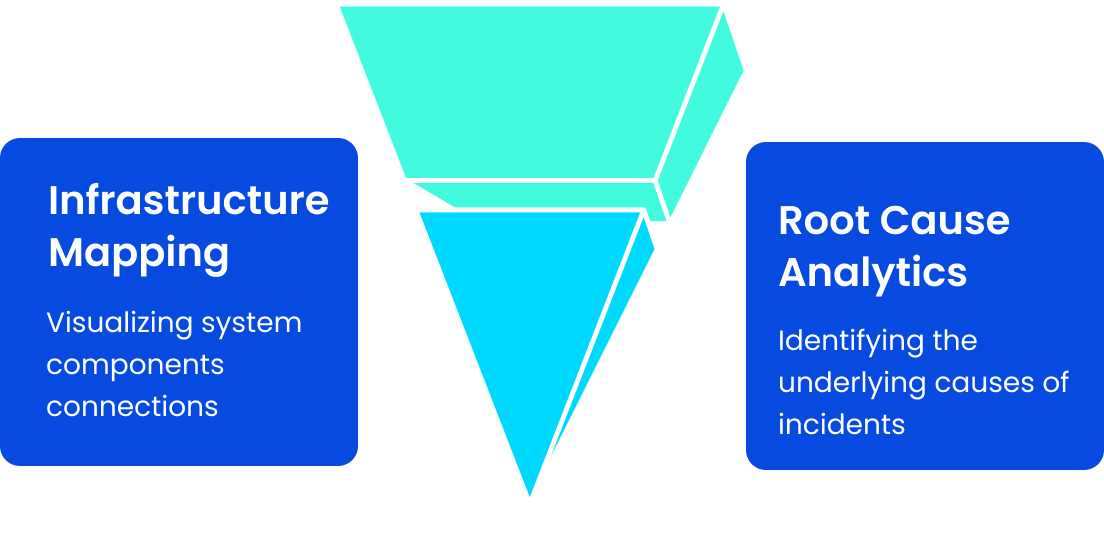
Monitor KPIs, measure IT impact, and make strategic decisions faster, all from one intelligent, high-level dashboard.

Detect, analyze, and remediate IT issues before they impact operations.
Assess change impact, automate approvals, and track releases in real time.
Enable users to solve issues and automate requests without IT intervention.
Monitor system health, detect vulnerabilities early, and prevent downtime.
Automate security enforcement, track risks, and maintain continuous compliance.
Connect ITSM tools, cloud services, and enterprise apps into one system.